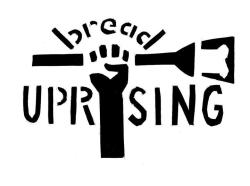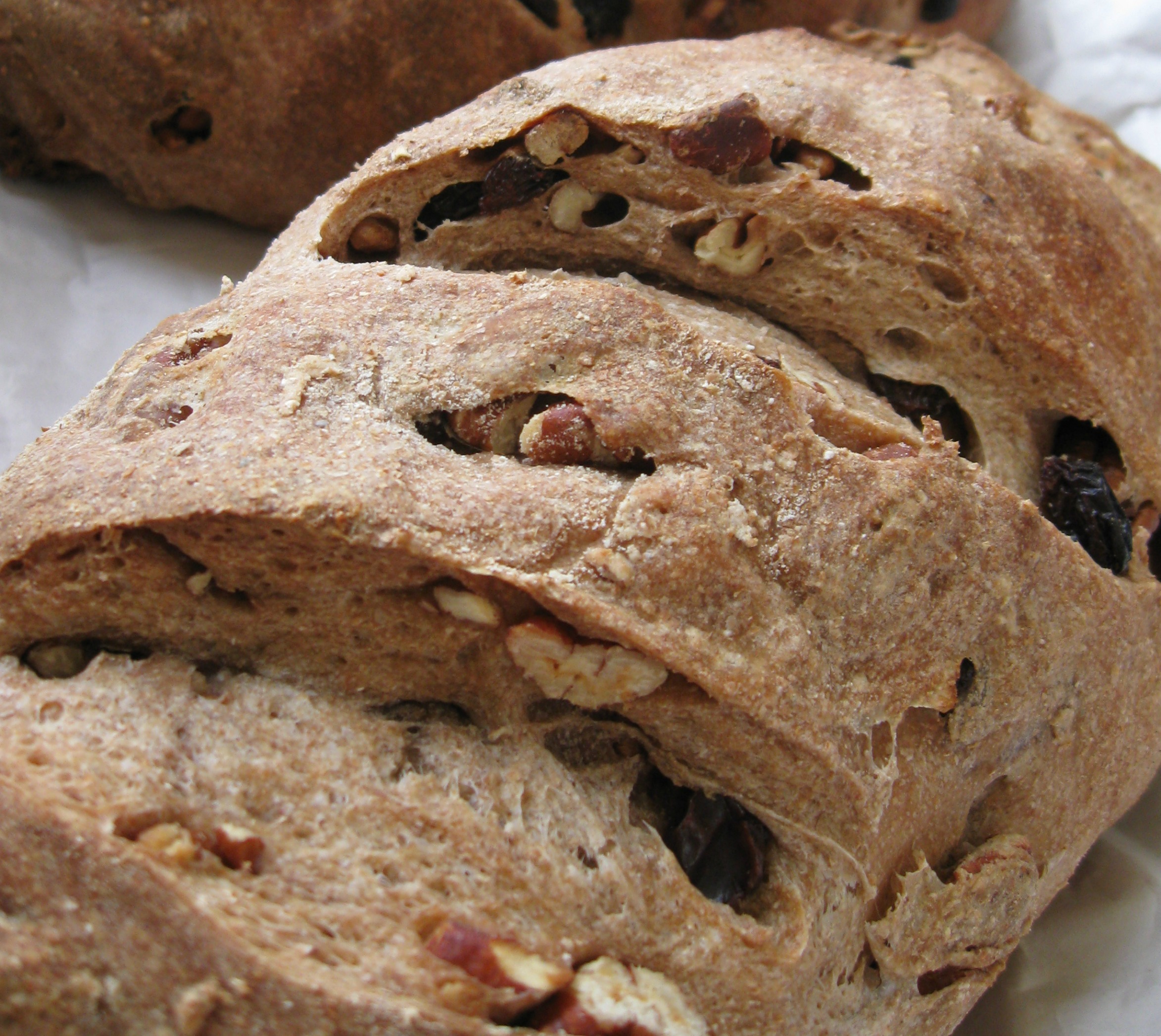
Photo by Bread Uprising.
If you’re part of the 47 percent of Americans with the audacity to feel entitled to food, these are trying times. The price of both wheat and corn jumped 25 percent from June to July of this year. For people who are already food-insecure — lacking dependable access to nutrition — price shocks can be particularly devastating. In the developing world, famine serves as a catalyst for political unrest, but even in the U.S., where we spend less on food than any other country, price hikes of basics like milk and bread don’t go unnoticed. Low-income Americans use a greater portion of their budgets for food — 17 percent — than the middle or upper class. For those already scraping to get by, a 50-cent increase in the cost of a loaf of bread is a big deal.
To Emily Chavez, “the idea that someone shouldn’t have bread because they don’t have money is crazy. It’s so basic.” (See how entitled she is?!) Chavez is a member of Bread Uprising, a bakery cooperative in Durham, N.C., that envisions a community-based food system where no one should have to go without bread and where no one questions every citizen’s entitlement to this most fundamental part of our diet.
The coop works like a community-supported agriculture (CSA) program, but for bread, not produce. In exchange for a weekly delivery of bread, members pledge a certain amount at the beginning of a four-month season — whatever they feel they can afford. Tim Stallman, one of the founders of Bread Uprising, says they need to average between $4 and $6 a loaf to break even — about what you’d expect to pay for a good-sized loaf of fresh bread at your favorite artisanal bakery, but still a bit extravagant for those of us on a budget. So Bread Uprising tries to meet people where they are.
“Some people have a lot of money and no time; some have a lot of time and no money; and some have neither,” Stallman says. “There are a lot of ways for individual people to plug in based on whatever their time or talents are.”
For instance, members can use food stamps to purchase ingredients for baking, rather than paying directly for their bread. Or they can volunteer their time — everything from helping with cleanup after a baking session to picking blueberries for the muffins that sometimes supplement the bread orders. Chavez and her partner have both contributed by serving on the Bread Team, the bakery’s core decision-making group. Each member commits to delivering bread one week out of the season, which also helps the community keep in touch.
Beyond enjoying the practical benefit of having access to tasty, healthy bread, members of Bread Uprising “see ourselves as baker-organizers,” Stallman says. “When we started, it was [about] looking for ways to keep money within the community, and start to put ourselves out of the loop of the mass manufacturer.”
The bakery’s members often expand this philosophy beyond bread. “It’s spurred people to exchange other things that we need,” Chavez says; for example, some folks in the community are talking about starting a car-fixing coop. “We can support one another without monetary resources.”
 Working outside the lines of traditional capitalism has economic advantages, but it builds community, too. Bread Uprising hosts “bread assemblies” every six months, potlucks where the whole member community comes together to talk about the concepts driving the bakery — food justice, food sovereignty, consumer and worker cooperatives. Last winter, the bakery held a series of study sessions on “race, class, queerness, and bread,” and those conversations led the group to commit to having a majority-minority membership. In other words, over 60 percent of bakery members are people of color, and anyone without consistent access to food gets priority membership.
Working outside the lines of traditional capitalism has economic advantages, but it builds community, too. Bread Uprising hosts “bread assemblies” every six months, potlucks where the whole member community comes together to talk about the concepts driving the bakery — food justice, food sovereignty, consumer and worker cooperatives. Last winter, the bakery held a series of study sessions on “race, class, queerness, and bread,” and those conversations led the group to commit to having a majority-minority membership. In other words, over 60 percent of bakery members are people of color, and anyone without consistent access to food gets priority membership.
“Durham is having a local-food renaissance, but it’s predominantly white, upper-middle-class people involved,” Stallman explains. While they want the bakery to be open to anyone, they also want to make sure they’re feeding those who need it most.
At this point, Bread Uprising doesn’t have a storefront or a dedicated baking space. Stallman and two other members do all the baking in one of their apartments. Their next step is to figure out how to scale up without compromising their ideals. They’re wrapping up an indiegogo campaign to raise money so they can pay bakers a living wage, buy new equipment, and expand the bakery’s reach. They’re also exploring a transition to a worker-cooperative model, similar to the Bay Area’s Arizmendi bakeries, where every employee is actually a co-owner, too.
“We’re trying to do a hybrid model where workers have democratic control and are paid a living wage, but at the same time have a conversation that includes members [and] makes the bread accessible,” Stallman says.
Chavez, for her part, thinks it’s possible to expand the bakery and still preserve its philosophy, and she and the others are personally dedicated to ensuring it does.
“We operate on the idea that people have an abundance of things to give,” Chavez says. “A lot of us are going to stay broke, so we have to find ways to work with that.”



